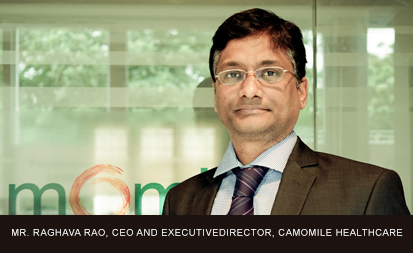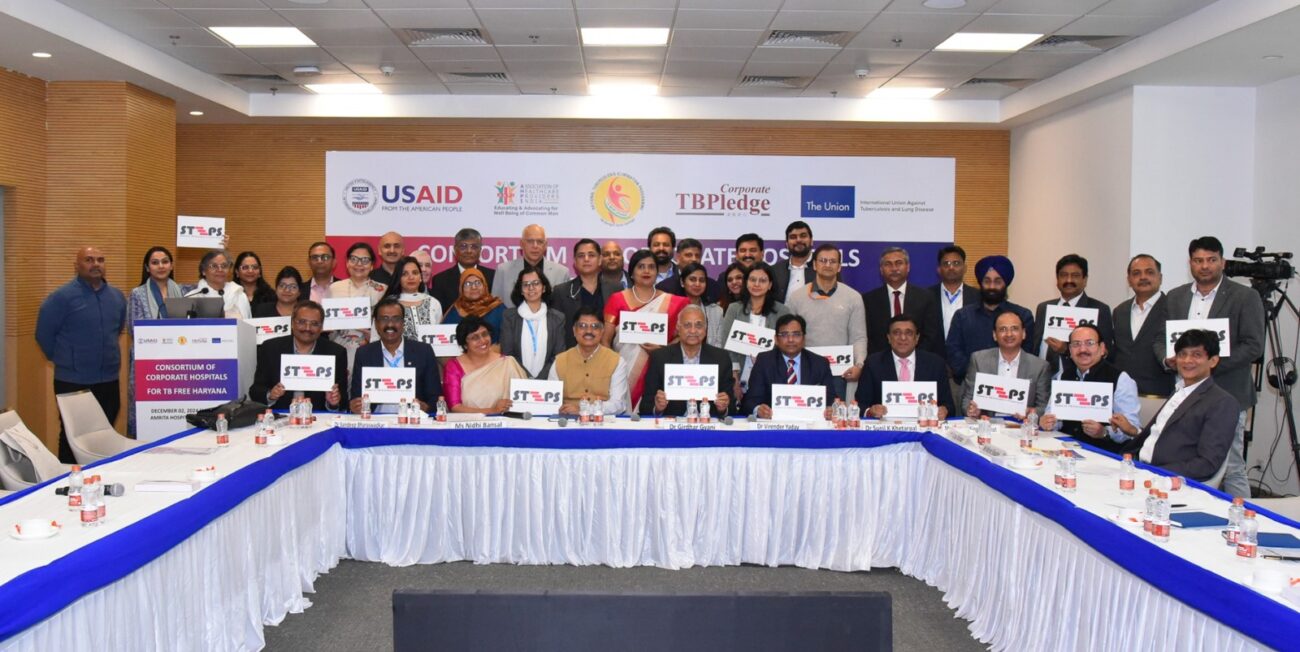BRINGING THE PATIENT BACK TO HOSPITALS
The Covid-19 pandemic has had a huge and everlasting impact on hospitals. Its outbreak in 2020, saw many hospitals shut their doors on their patients, and defer treatment and care, due to safety concerns. They partially

The Covid-19 pandemic has had a huge and everlasting impact on hospitals. Its outbreak in 2020,
saw many hospitals shut their doors on their patients, and defer treatment and care, due to safety concerns. They partially opened up at the end of the year, but even then and ever since, patients
have been averse of going back to get treated, due to the fear of getting infected or infecting their loved ones. The pandemic brought forward the various shortcomings in hospitals, in dealing with such a crisis, and in ensuring continued care is provided to all. The healthcare industry was seen
as a defensive sector that would have minimal impact with economic downturns and meltdowns. This is
primarily due to the notion that demand for healthcare would not fluctuate. However, this premise
was proved wrong when the Covid – 19 pandemic struck during early 2020. – Mr. Raghava Rao, CEO
and Executive Director, Camomile Healthcare Healthcare providers need to make radical changes to healthcare delivery, to meet increasing patient expectations. Factors such as patient safety from
infection, convenient access to healthcare resources- general physicians, specialists, lab diagnostics, follow-ups etc., operational workflows to efficiently handle Covid and Non-covid patient
volumes separately are to be looked into and worked upon. Hospitals must also leverage technology and digital capabilities, in order to continue providing quality, safe and effective care
to their patients. The key to remaining relevant and sustaining the winds of change will be
to steer the way through the rapidly changing preferences of the patient. The place, nature and the type of care are changing. Hospitals, both big and small need to embrace this to continue their care
journey. Dr. Balaji Goli, Executive Director Camomile Healthcare Camomile Healthcare conducted a
comprehensive study of over 1000 people across India, to understand and analyze their change in expectations from hospitals and what needs to be done to bring back patient volumes.
Here are a few insights from that report: Patients don’t feel it’s safe to visit hospitals Over 77% of the respondents said they are unsure of the safety of visiting hospitals and fear getting infected. Even
though hospitals have been mandated by the government to ensure necessary protocols and measures such as regular sanitization, separate wards for Covid patients and regular testing of medical
staff, the perceived high risk of infection still exists. A recent study in a Delhi hospital showed
that 11% of their medical staff got Covid, during the second wave. Although all of them were vaccinated and the cases were mostly mild with a 100% recovery rate, the fact that infection is a possibility
does not change. Measures are to be implemented that ensure patients visiting are safe at all
times. Medical procedures and surgeries involve a very high degree of contact between the patient, the doctor and medical instruments. Regular sanitization and replacement of instruments are vital. 58% of our respondents stated that this is an important criteria for choosing a hospital to go for their treatment. Provision of virtual care- Now an imminent necessity The pandemic has shifted medical
treatment and care delivery from being provided in hospitals to at the patients’ homes. 83% of our respondents stated that they would prefer a virtual consultation, over visiting a hospital. Hospitals need to adapt and re-orient towards digital health. There were a whopping 5Cr online consultations done in India, just within 4 months of the lockdown. This number would have only gone up after the aggressive second wave shook the country. Our study shows that 83% of those who had taken a virtual consult were satisfied with the care provided. Hospitals must see virtual care, not as a temporary alternative, but as a core offering going forward. 71% of our respondents said they would prefer virtual consultations, even after the pandemic has subsided. $6.7 Bn was invested in digital health during Q1of
2021, globally. Indian hospitals must follow these steps, to not get left behind and be a part of this digital revolution of healthcare. Patients expect the same standard of care through virtual
It is important that there is no compromise in the level of care provided during a virtual consult. Patient
satisfaction is vital and can be ensured by establishing standard protocols, training doctors towards treating patients effectively online and investing in IT, to ensure a strong connection, and easy
accessibility. Going beyond online consultations- Comprehensive digital health services Providing healthcare does not end at just a consultation. Patients need to get treated completely and hospitals need to look into doing this (to a certain extent) outside their walls. Home health services, which were
previously only targeted mainly to senior citizens and the terminally ill, are now offering a plethora of options for all kinds of patients – home collection of samples for tests, home visits by nurses
and doctors, remote monitoring of vitals through wearables, virtual checks, post discharge follow-up and home delivery of reports,medicines. 57% of our respondents said they would choose a hospital that provides such digital health services, that can be availed from the comfort of their homes. We can clearly see that this new system will mean patients would only visit hospitals when their condition or
treatment demands it. Conclusion It is clear that, in order to cope and thrive in this new normal, hospitals must move towards being digitally enabled. This involves investing in technology, re-orienting doctors and care providers, establishing standard operating procedures and reimagining
care delivery to make it highly accessible and patient-centric. The outlook is expected to be very
promising and the sector has a huge opportunity to create a leaner and more efficient healthcare system
that will be a combination of bricks and clicks, moving forward. Mr. Raghava Rao, CEO and Executive
Director, Camomile Healthcare






